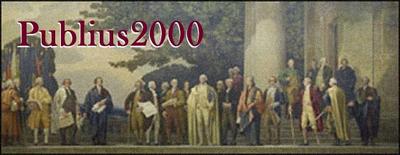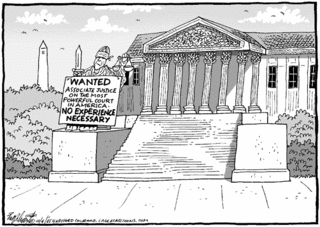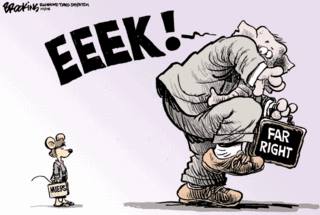Alito It Is
Here is a U.S. News article on Alito from earlier in the year...
"Nicknamed "Scalito" for views resembling those of conservative Supreme Court Justice Antonin Scalia, Samuel Alito Jr. is a favorite son of the political right. Appointed in 1990 by George H.W. Bush to the Third Circuit Court of Appeals, Alito has earned a reputation for intellectual rigor and polite but frequent dissent in a court that has been historically liberal. His mettle, as well as a personable demeanor and ties to former Republican administrations, has long had observers buzzing about his potential rise to the high court. "Sam Alito is in my mind the strongest candidate on the list," says Pepperdine law Prof. Douglas Kmiec. "I know them all . . . but I think Sam is a standout because he's a judge's judge. He approaches cases with impartiality and open-mindedness."
A New Jersey native, the 55-year-old Alito received a bachelor's degree from Princeton and graduated from Yale Law School. He worked in the solicitor general's office during the Reagan administration and was a U.S. attorney for the District of New Jersey when George H.W. Bush nominated him to the Third Circuit. His 15 years on the bench have been marked by strong conservatism on a case-by-case basis that avoids sweeping opinions on constitutionality.
In 1997, Alito authored the majority opinion upholding a city's right to stage a holiday display that included a Nativity scene and a menorah because the city also included secular symbols and a banner emphasizing the importance of diversity. In Planned Parenthood v. Casey, Alito was the sole dissenter on the Third Circuit, which struck a Pennsylvania law that required women seeking abortions to consult their husbands. He argued that many of the potential reasons for an abortion, such as "economic constraints, future plans, or the husbands' previously expressed opposition . . . may be obviated by discussion prior to abortion." The case went on to the Supreme Court, which upheld the lower court's decision 6 to 3.
Alito's conservative stripes are equally evident in criminal law. Lawrence Lustberg, a New Jersey criminal defense lawyer who has known Alito since 1981 and tried cases before him on the Third Circuit, describes him as "an activist conservatist judge" who is tough on crime and narrowly construes prisoners' and criminals' rights. "He's very prosecutorial from the bench. He has looked to be creative in his conservatism, which is, I think, as much a Rehnquist as a Scalia trait," Lustberg says.
Some observers say that Alito cannot be easily pigeon-holed. In Saxe v. State College Area School District, Alito, writing for the panel, argued that the school does not have the right to punish students for vulgar language or harassment when it doesn't disrupt the school day. "Sam struck that down as a violation of free speech," Kmiec says. "That's not a conservative outcome."
Off the bench, friends and colleagues describe Alito as quiet and self-effacing with a wry sense of humor. He is a voracious reader with a particular love for biographies and history. With his wife, Martha, he has a son in college and a daughter in high school. "He's mild mannered and generous and family oriented," Lustberg says. "I don't agree with him on many issues, but I have the utmost respect for him. No one can question his intelligence or integrity."




